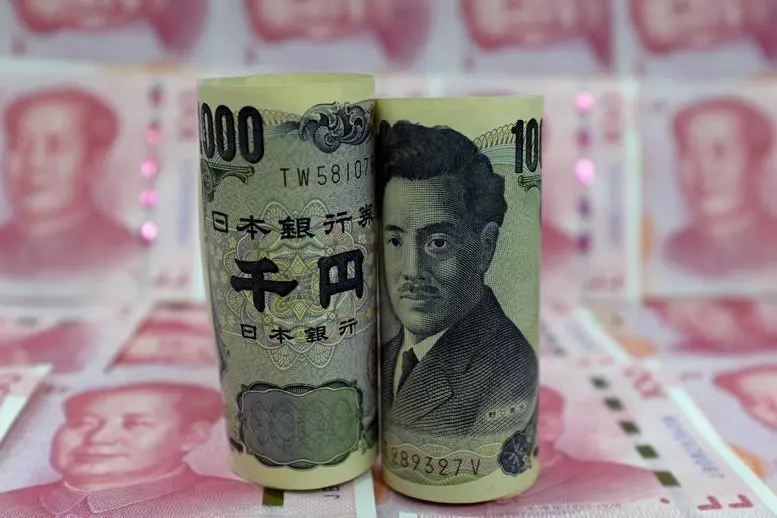PHOTO
TOKYO/SINGAPORE- The yen's status as a safe haven is coming under pressure as unease grows about the rising number of coronavirus cases in Japan, against the backdrop of a stuttering domestic economy.
Japan's currency tumbled to a nine-month low against the dollar and faced a barrage of selling against other currencies on Wednesday, in what traders and analysts say points to a flight of large portfolio investors from yen markets.
That runs counter to the long-standing assumption that Japanese funds would repatriate their money during a true global crisis, pushing the yen higher.
"You see any potential concern about the virus situation playing out in gold...and you're not seeing the same moves in the yen," said Shafali Sachdev, head of FX for Asia at BNP Paribas Wealth Management in Singapore.
"Nearness to China and dependence on China in this current situation have not helped the yen as a risk-off," she said, adding that Japan's exposure to the virus outbreak and recent weak economic data had exacerbated the concerns.
The yen was quoted at 111.36 to the dollar on Thursday following Wednesday' decline of 1.3%, its biggest daily drop in five months.
Japan's currency also nursed big losses against the euro, the pound and the Australian dollar. At the same time, gold, which normally moves in concert with the yen, rose 0.6%.
Analysts were quick to pin the move to large portfolio shifts out of yen-denominated assets - most likely by Japan's giant government pension funds - amid worries about its economy and the spread of the coronavirus.
The outbreak started in China, but its spread through a cruise ship moored in Tokyo means Japan now has well over half of the known cases outside China.
There are already fears it will cast a pall over the Olympic Games in Tokyo, due to begin late in July and bring a hoped-for boost to the national economy and morale.
Should it start to spread through Japan's population, however, the fallout would almost certainly be enough to tip the world's third largest economy, which shrank unexpectedly hard last quarter, into recession.
Some 3 trillion yen ($27 billion) in net foreign bond purchases by Japanese investors in the first two weeks of February seems to underscore the lack of confidence in domestic investments.
The move lower in global interest rates has undermined the yen's attractiveness as a "funding currency," or one cheap to borrow for use in buying riskier investments.
That weakens another string of the yen's safe-haven bow because the reversal of such trades in times of trouble was thought to be another factor to support its value.
"If nobody is using yen as a funder anymore, maybe there is no reason for the yen to trade as a safe haven," said Brent Donnelly, spot FX Trader at HSBC.
"Price action in the past year or two has raised the question," he said, pointing out the yen's muted response in recent months to tension on the Korean peninsula, trade-war spats and January's U.S.-Iran flashpoint in the Middle East.
"The price action overnight adds some urgency to the idea that we have crossed over into a new yen regime." ($1=111.7400 yen)
(Reporting by Stanley White in Tokyo and Tom Westbrook in Singapore; Editing by Clarence Fernandez) ((stanley.white@tr.com; +81 (0)3 4563 2799; twitter.com/stanleywhite1 ;))





















